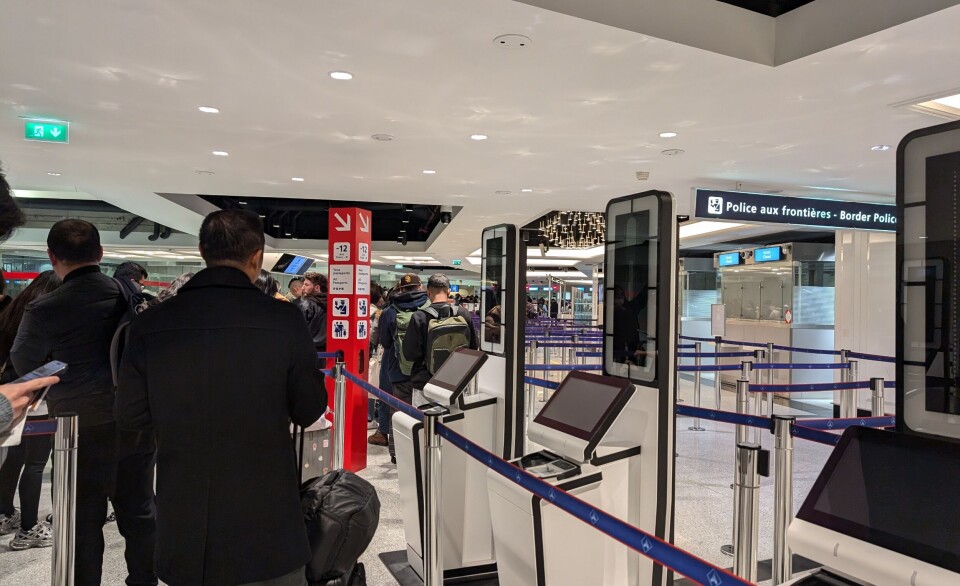-
French tax officials have extra ‘weapons’ to challenge suspicious declarations
Taxpayers may be asked for further evidence or explanations to justify expenses or credit claims
-
AI finds ‘soaring’ cases of fraud in French home renovation applications
More than 40,000 cases were detected in 2024, the housing agency states
-
Good news for electric car owners in France as thousands more charging stations to be installed
MPs recently rejected plans to bring forward ban on petrol vehicles
Recap: practical changes in France include luggage, dentists, fraud
11 new French services, policies and events that may affect your everyday life

1. Chemists’ services
Pharmacies, nurses and midwives are now able to prescribe and administer a range of vaccinations to adults, though children under 11 still need a prescription from a doctor or paediatrician.
The measure aims to enhance vaccination coverage.
There are also plans to give pharmacists more responsibility for testing for certain diseases and renewing prescriptions.
Read more: French pharmacies now able to prescribe antibiotics…but GPs sceptical
2. Fraud issues
The Signal Conso app, which helps consumers report problems with traders and businesses, is to be made available in English and French in time for the Rugby World Cup starting on September 8.
Fraud officials at the directorate-general for competition, consumer affairs and fraud watchdog also partnered with European Consumer Centre France on a set of FAQs, answering queries and reminding visiting consumers about their rights in France.
3. Gas charges down
Gas prices should fall this month after the CRE regulator published its updated benchmark prices.
This estimation is meant to guide suppliers and consumers following the abolition of the regulated gas tariffs in July.
The CRE has suggested an average price of €0.10512/kWh for cooking and hot water contracts, down from €0.10700 in August.
For heating, it recommends €0.08218/kWh, down from €0.08406.
This includes tax but not subscription costs. Clients with contracts indexed on the CRE’s benchmark price will benefit.
Read more: Tips and help on navigating the new changes to France’s gas market
4. Bullies moved
The new school term enables schools to move students involved in bullying to other establishments, following a decree published in August.
The move, aimed at bolstering deterrents against school bullying, comes after two teenagers died by suicide.
It also permits action against cyberbullying in cases where students at another school are being targeted.
5. Leave your luggage
Shops belonging to the Franprix chain have partnered with Nannybags, a left-luggage network, to allow people to leave their luggage or bags at dedicated sites in stores in Paris, Marseille and Lyon.
The service is currently being tested in 19 outlets, chosen for their long opening hours and proximity to busy areas.
According to Franprix, more than 100 suitcases were deposited in three days at a test store in Paris’s 1st arrondissement.
6. EV charging costs
European charging network Ionity has cut recharging rates in France by 10 cents, helping electric car drivers to offset the recent 10% increase in electricity costs.
The German company’s ultra-fast charging stations will now charge at €0.59 per kWh, compared to the previous €0.69.
Ionity has 50 charging stations in France out of a Europe-wide network of more than 400.
Read more: ‘We tried out driving from Yorkshire to Dordogne in an electric car’
7. Free check-ups
The flagship free health check-up programme is due to launch in October, starting with those aged 45-50.
The scheme will eventually offer a free health check to people in three ‘key’ periods of their lives – 20-25, 45-50, and 60-65 – as part of a greater focus on prevention.
People who are eligible should be contacted by Assurance Maladie when they are able to make an appointment.
The check-ups will be extended to the other age groups next year.
Read more: Free health check-up for 45-50 year olds in France: how will it work?
8. Train tickets
It is now possible to pay for train tickets in three instalments, over two months, on the SNCF website or app.
This option is available for ticket purchases of at least €150, but it does come with an additional cost of 1.5% of the ticket price.
Read more: Ways to save money on train travel in France
9. Sports grant
The Pass’Sport scheme, offering €50 grants to people aged six to 30 who sign up to a sports club, has been renewed until the end of the year.
Those eligible include children whose families receive the ARS back-to-school grant, young adults who receive the AAH disability grant, and students eligible for a bursary.
10. French pension reform
From September 1, new laws that will gradually increase the national French retirement age to 64 by 2030 come into force.
Those born on September 1, 1961, are the first to be affected, while successive generations will have their retirement age increased by three months.
11. Dental charges
Patients will be left to pay for a greater proportion of dental costs from October 1: 35%-45%, up from 30%.
It means social security coverage will fall to between 55% and 65%.
The rest is usually covered by the patient’s mutuelle, if they have one.
Read more: 7 points to consider when choosing top-up health insurance in France
The government estimates that the additional annual cost to complementary health insurance firms could be around €500million.
They are expected to increase premiums as a result.
Related articles
Rail cards, visas: practical updates in France
La rentrée: 12 points to understand French schools
16 things you can do at a French pharmacy other than buy aspirin
























